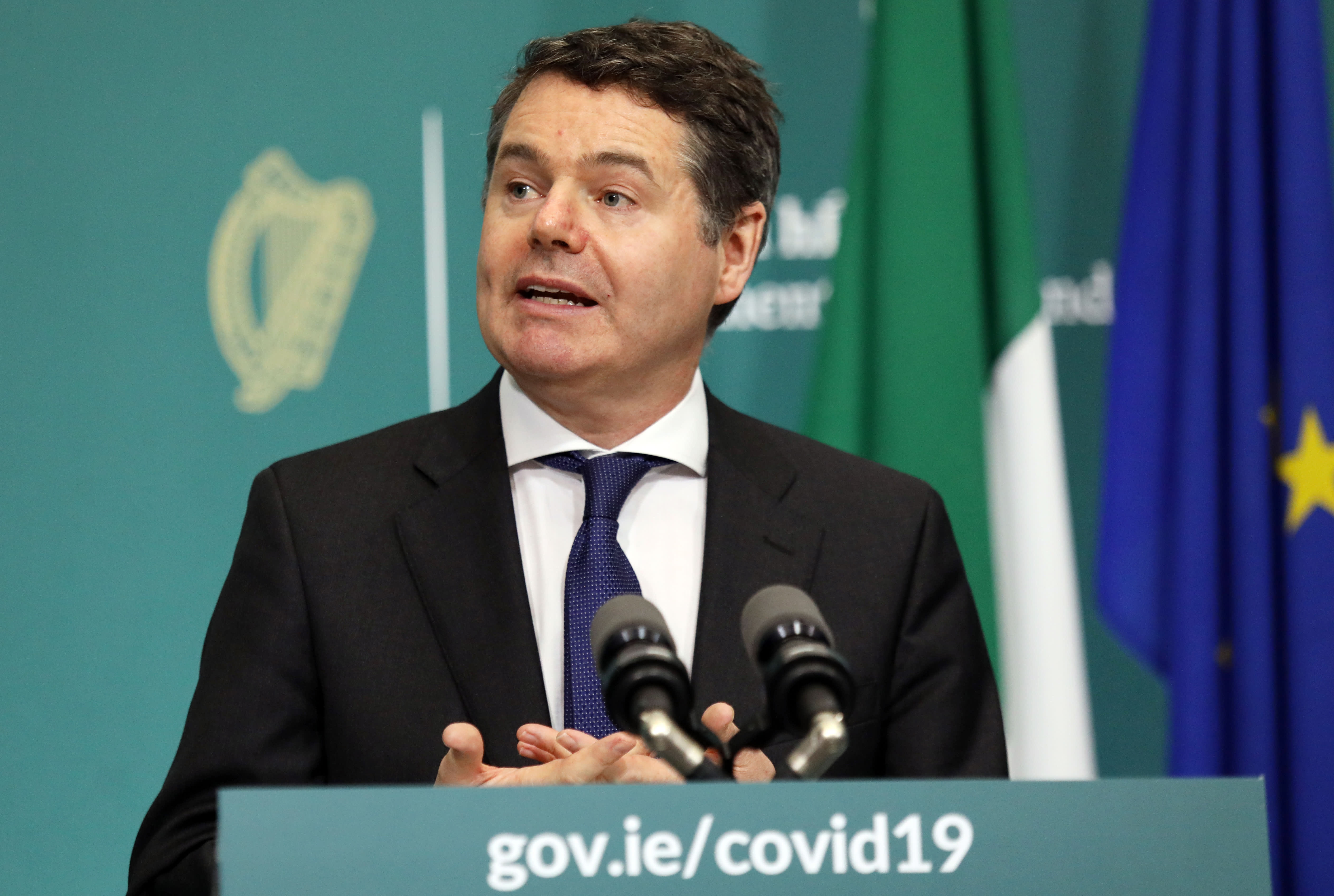
Ireland Finance Minister Paschal Donohoe.
Leon Farrell | PA Images via Getty Images
DUBLIN — The Irish government has presented a budget that it calls the “largest in the history of the state” as it faces down the twin threats of coronavirus and Brexit.
The 17.75 billion euro ($20.8 billion) budget, announced Tuesday, was prepared under the assumption that there will be no trade deal between the EU and the U.K. and that no coronavirus vaccine will be widely available in 2021.
This package includes a 3.4 billion euro recovery fund, 8.5 billion euros for public services and an extra 4 billion euros for health — all while balancing the government’s climate commitments, which includes a carbon tax increase.
Minister for Finance Paschal Donohoe and Minister for Public Expenditure and Reform Michael McGrath presented their budget packages to parliament amid a stark economic outlook for Ireland.
Donohoe projected a deficit of 21.5 billion euros for 2020, with a 20.5 billion euro deficit forecasted for 2021.
A series of measures were introduced to prevent further job losses and support businesses upended by the pandemic.
Some of these measures include 1.1 billion euros granted to the Department of Business, which oversees Covid support funds for startups and small businesses, a reduction in VAT for hospitality businesses to 9% until December 2021, 55 million euros for the tourism business support scheme and a 50 million euro fund for live entertainment.
A new interdepartmental group will also be formed to develop proposals on how to leverage EU funds and to establish an equity fund to invest in “domestic high innovation enterprises.”
In addition, a scheme called the Covid-19 Restrictions Support Scheme will provide businesses with up to 5,000 euros a week if they are forced to close as a result of coronavirus restrictions.
The entire country was recently moved to level three of Ireland’s coronavirus plans, forcing some businesses to close once again or operate under tighter restrictions.
Further funding has been earmarked for Brexit support in 2021. This includes extra funds for the department of agriculture, as these exports to the U.K. are expected to be hit hard by Brexit, as well as provisions for hiring more customs staff as part of upgrades to airports and ports.
The country’s carbon tax will also increase from 26 euros per metric ton of carbon dioxide to 33.50 euros.
Corporation tax
Ireland’s corporate tax rate of 12.5% remains unchanged, as expected.
Donohoe said the exchequer has booked just under 7.5 billion euros in corporate tax receipts this year.
“This has played an essential role in funding pandemic-related expenditure,” Donohoe said, but he admitted that change in some form was likely.
“Further work is needed at international level, what is certain, however, is that change is inevitable,” he said.
“Agreement at the OECD level would present challenges for Ireland, as changes to the international tax framework would see a reduction in the level of profits taxable here. Failure to reach agreement at the OECD would also have negative consequences for the exchequer. The work will reach a crucial stage next year.”




